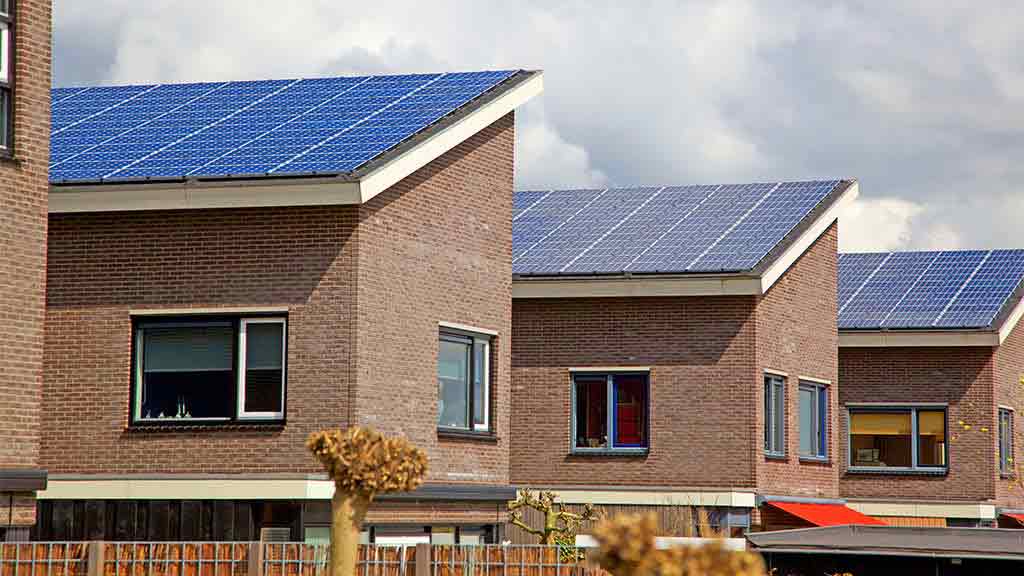I have had many conversations with those close to me about sustainable energy, and why Big Oil, Edison, and other major energy producers are so stubbornly opposed to the transition to more sustainable energy sources like Solar power. The argument I often hear is "wouldn't they make MORE money?" Or else "The oil will run out. Investment in Solar is an investment in THEIR OWN future." We can also point to arguments made on both sides of the climate change debate. However, it is my assessment that the reality of climate change and even money come secondary to the true purpose behind the continued reliance on coal and fossil fuels. The ultimate reason for the resistance to solar energy is not to make objectively higher profits, it is to control the market for energy.
Examine what has already happened with solar energy: those who have invested the funds into making their homes fully integrate solar energy, with modern panels, tend to have their energy bills drastically slashed, or even nonexistent. At the far end of the spectrum, some users even gain some monthly INCOME from surplus energy produced by their solar systems. This has made it increasingly plausible for people to live "off the grid" and thereby to weaken the stranglehold that Edison has over the electrical needs of the people. In some states, like Florida legal hurdles are being put up to prevent people from living off the grid. This is primarily a matter of energy independence, not of the nation, but of individuals. The more people who can supply their own power, the less energy companies like Edison remain necessary. Ultimately, the energy companies will be rendered redundant, and collapse. Therefore they fight to protect their monopoly on power, by lobbying the government to restrict access.
Big Oil is similarly invested in preventing Solar Energy from taking hold. The burgeoning solar industry threatens Big Oil's longevity. Since there is such potential for people to acquire surplus energy, this creates an incentive towards the predominance of electric cars over those run on gasoline. If solar panels continue to be made more efficient, each home could be able to supply enough power to consistently charge a car, effectively for free, making Big Oil similarly redundant.
The transition of such companies from the oil industry, or even from the traditional forms of electricity into solar companies would only be a stopgap measure. For a good long while, there will be a market for solar energy as people become energy independent one by one. The technology will inevitably become cheaper and more efficient to produce and install, making it more commercially available even for lower income families. Ultimately, it will reach the point where Solar is simply cheaper and better than paying the energy company, and the return on investment will come sooner and to a greater degree. The rate of homeowners switching to solar will increase exponentially. There will come a point at which there is too much independent energy, let's call it "Energy Critical Mass." When we reach this Energy Critical Mass, there is no longer any social need for an energy company. It serves no purpose. Neighborhoods will at this point produce so much energy that charging money for it becomes an utter absurdity. With this advent comes the complete energy independence, not only of the nation from foreign oil reserves, but indeed of most individuals from energy companies altogether.
This form of economic and energy independence of the average citizen will be a tremendous democratizing force. It will eventually level the playing field in a significant way. When those living in poverty, or on the edge of it, are freed from their bondage to monthly utilities bills and gas expenditures, they will achieve unprecedented freedoms, in terms of freedom of movement and self-reliance. They will be able to freely relocate to where their skills are most valued, shifting the balance of bargaining power in the employer/employee dynamic in favor of the worker, weakening the hold bosses can have over those working under them. Employers who offer lower wages or fail to offer benefits will risk losing their workers, whose poverty once forced them to accept what work they could get where they were, not only to locally competitive rivals, but to rivals at great distance as well. They will ultimately have no recourse but to adequately and humanely see to the wellbeing of their workers. Capitalism will be required to adopt a conscience or die.
It is my belief that this in inevitable. Government action on behalf of electric or Big Oil lobbies, the restriction and holding back of research and development regarding solar energy can only forestall this eventuality. They can hold it off for a time, perhaps even a very long time, but sooner or later it MUST come to pass that the people at large will be freed from the yoke of their masters. As they gain one freedom they will demand another, until all chains have been broken. It is only a question of when?

